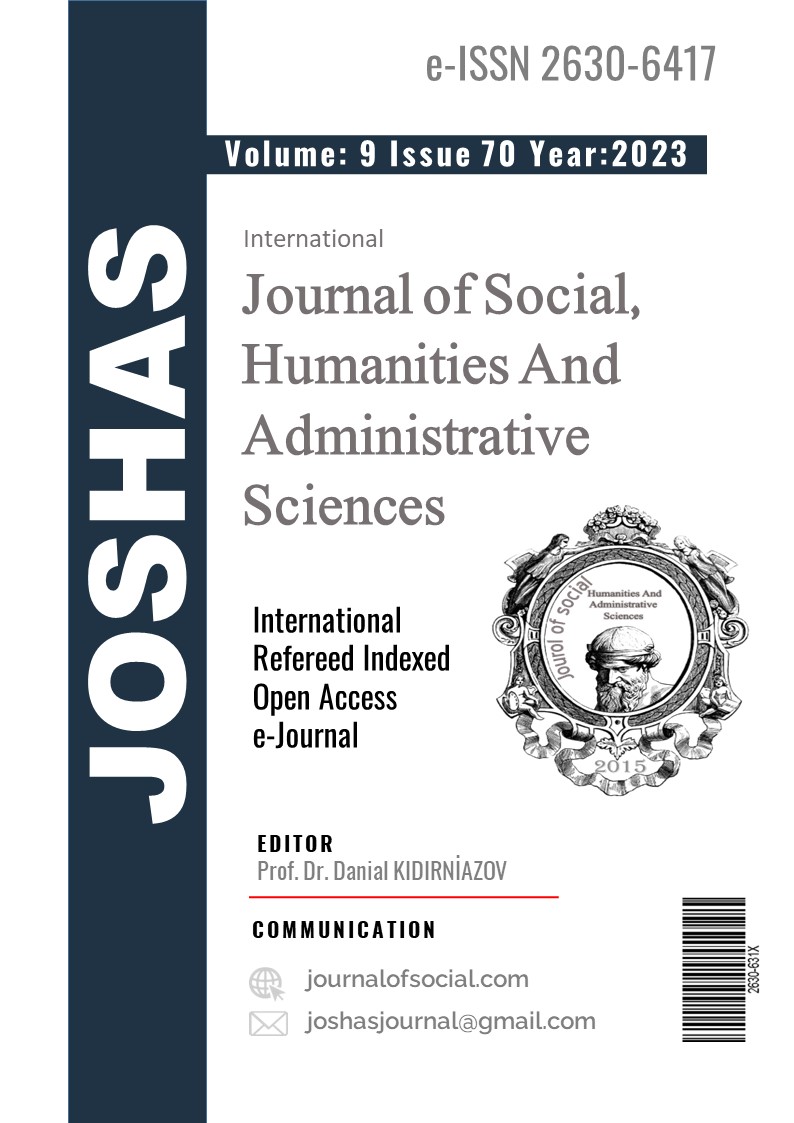Hegel’in Köle-Efendi Diyalektiği: İşçi-İşveren Arasında Dönüşüm Biçimlerinin İş İdareciliği Yazınına Uyarlanması
Author :
Abstract
|
Hegel, Tinin Görüngübilimi’nde, öznenin dış dünyada nesneyi biçimlendirip kendi bilincini elde edebilmesini başka bir özne yoluyla gerçekleşeceğini söylemektedir. Köle-efendi ilişkisi Hegelci kavramsallaştırmada diyalektiktir. Bu şekilde efendi kendilik yoluyla bir varlık olarak insanî gelişmede aracı rol üstlenir. Efendi, doğanın dönüştürülmesine bilfiil emeğiyle katılmadığı gibi girişimsel hamlesinin olmadığı veya kesintiye uğradığı durumda emekten bahsedilemez. Köle ise efendinin sağladığı çalışma olanağıyla doğadan sıyrılır, kendilik bilincinde varlık olarak farklılaşır. Dış dünyada doğayı eyleyerek farkındalık düzeyine erişir. Burada köle efendinin egemenliğini, efendi de kölenin ürettiğini tanır. Efendi başlangıçta egemendir ama köleye ve ürettiğine de muhtaçtır. Köle emek harcayıp doğayla ilişkiye girer. Bu nedenle ikisi bir aradadır, birbirleriyle çatışır, nihayet birbirlerinden ayrılır. Ancak bu ayrılma kölenin emeğiyle doğal olanı dönüştürmek suretiyle kendi bilincinde varlık olarak farklılaşması ve fiili olarak efendiye bağlıymış gibi görünse de, efendinin ilişkinin pasif tarafında yer alması sebebiyle bir noktadan sonra onu aşmasıdır. Bu makale, çalışma yaşamında işçi-işveren arasındaki ilişkiyi köle-efendi diyalektiği ile ele alırken, işverenden taraf gibi görünen güç dengesinin bu gerçekliğe ne ölçüde karşılık geldiğini betimlemektedir. Diğer deyişle, işçi-işveren ilişkisinde kimin özne kimin nesne olarak konumlandığının Hegelci düşüncede tartışılmasıdır. Makale, hem iş idaresi yazınında eksik olan felsefi boyuta katkı sunmayı hedeflemesi hem de sürdürülecek çalışmaların ilk basamağını oluşturması münasebetiyle anlamlıdır. |
Keywords
Abstract
|
In his work Phanomenologie des Geistes, Hegel says that the subject can shape the object in the outside world and gain his own consciousness through another subject. The slave-master relationship is dialectical in the Hegelian conceptualization. In this way, the master assumes an intermediary role in human development as an aware being through the self. Just as the master does not participate in the transformation of nature with his actual labor, there is no labor when his entrepreneurial move is absent or interrupted. The slave, on the other hand, is separated from nature with the working opportunity provided by the master and differentiates as a being with the awareness of 'self'. Here the slave recognizes the master's sovereignty, while the master recognizes what the slave produces. The master is dominant in the beginning, but he needs the slave and what he produces. He puts in effort and enters into a relationship with nature. Therefore, the two must coexist, conflict with each other, and finally separate from each other. However, this separation exceeds him after a point because the slave works and differentiates himself as a conscious being by transforming nature with his labor, and although the slave seems to be dependent on the master, the master is actually on the passive side of the relationship. While this article deals with the employee-employer relationship in working life with the slave-master dialectic, it examines to what extent the balance of power that appears to be on the side of the employer in the employee-employer organization corresponds to this reality. In other words, it is a discussion of who is positioned as subject and who as object in the employee-employer relationship, based on Hegelian thought. It is thought that the article will be meaningful as it aims to contribute to the philosophical dimension that is missing in the business administration literature and as a step for further studies. |





